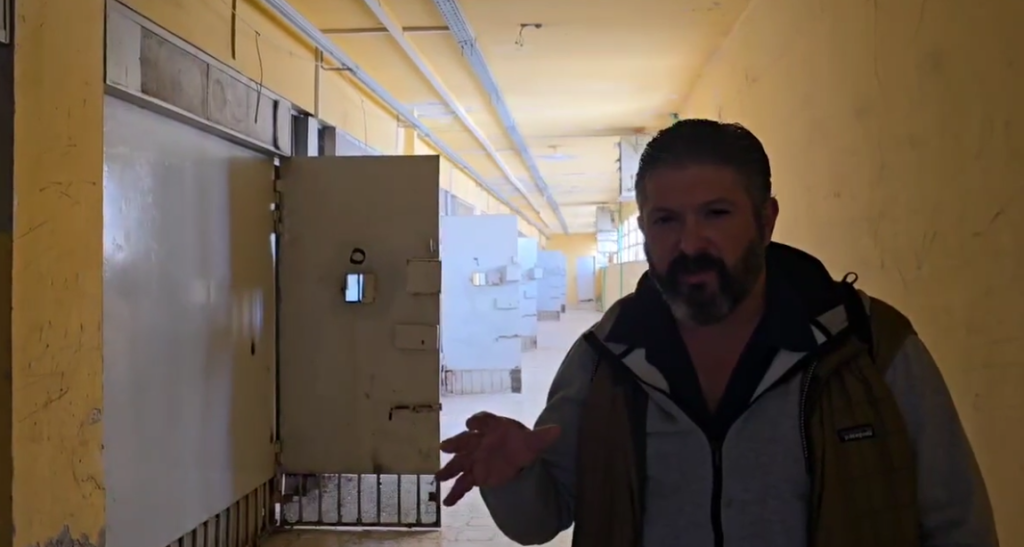Bryan Stern, a hostage rescue operator with Grey Bull Rescue, has expressed strong confidence in the belief that Austin Tice, an American journalist kidnapped in Syria in 2012, is still alive. Stationed in Syria, Stern bases his optimism on undisclosed intelligence gathered within the past two weeks. He asserts Tice is likely being cared for and is “findable,” emphasizing his organization’s focus on rescuing living individuals. Stern’s unwavering conviction stems from a lack of any evidence suggesting Tice’s demise, contrasting with positive indicators, though he refrains from revealing sensitive details. His experience leading successful rescue missions in high-risk zones around the globe, including multiple jailbreaks from Russia, underscores his expertise in complex hostage situations. He contends that the changing political landscape in Syria, following the ousting of Bashar al-Assad and the rise of HTS, presents a newfound opportunity to locate Tice.
The recent political upheaval in Syria, marked by Assad’s ousting and subsequent flight to Moscow, has generated cautious optimism regarding Tice’s potential recovery. Stern describes the atmosphere in Syria as “cautiously happy” after decades of oppressive rule. While the new governing power, HTS, isn’t obstructing the search, their focus remains on establishing governance rather than actively participating in the rescue efforts. Stern posits that Tice is likely being held in a residential area by Assad loyalists, specifically Alawites, the same religious sect as the former president. This theory is supported by the fact that most Syrian prisons have been thoroughly searched or emptied, and Stern dismisses the possibility of Tice being held in Russia by President Vladimir Putin, citing a strained relationship between Assad and Putin and the potential diplomatic ramifications with a future Trump administration, which has shown keen interest in Tice’s case.
Stern downplays the perceived strength of the Assad-Putin alliance, noting the lack of interaction between the two leaders since Assad’s arrival in Moscow. He believes Russia is unwilling to harbor Tice, viewing it as an unnecessary complication that could antagonize a potential future Trump presidency. Previous investigations suggest Tice may have escaped captivity years ago, only to be recaptured in a Damascus neighborhood and returned to detention. This reinforces Stern’s belief that Tice is being held locally rather than in a formal prison or abroad. The State Department’s $10 million reward for information leading to Tice’s recovery remains unclaimed, which Stern attributes to tribal loyalty and fear of Assad’s influence outweighing monetary incentives.
Despite Assad’s exile in Moscow, Stern emphasizes his lingering power and influence within Syria, which likely deters potential informants. He highlights the presence of former Assad loyalists within the new government, reinforcing the pervasive fear and loyalty that hinder information sharing. This entrenched network of allegiance, combined with apprehensions about reprisal, creates a culture of silence around Tice’s whereabouts. Stern believes this tribal loyalty, coupled with the fear of Assad’s reach, is the primary obstacle to obtaining information, rather than a lack of awareness of the reward offered.
Adding further weight to the hope for Tice’s survival, Nizar Zakka, president of Hostage Aid Worldwide, also asserted his belief in Tice’s continued existence, citing data indicating he was alive as recently as January 2024. This claim aligns with statements made by President Biden in August 2024. While Zakka presented an image purporting to show Tice’s locations of detention from November 2017 to February 2024 during a press conference in Damascus, further details and corroborating evidence remain limited. His organization, U.S. Hostage Aid Worldwide, has been collaborating with Tice’s family and U.S. authorities, mirroring the Biden administration’s persistent optimism regarding Tice’s survival.
The combined assertions of Bryan Stern and Nizar Zakka, along with the ongoing efforts of U.S. authorities and Tice’s family, paint a picture of cautious hope amidst a complex and challenging situation. While concrete evidence of Tice’s current status remains elusive, the absence of confirmation of his death, coupled with the belief of those actively involved in the search, fuels a glimmer of hope for his eventual recovery. The evolving political dynamics within Syria, the persistent efforts of hostage rescue organizations, and the unwavering commitment of Tice’s family and the U.S. government provide a foundation for cautious optimism, even as the search enters its twelfth year. The upcoming Christmas holiday adds a poignant layer to the ongoing efforts, as Stern and others working on the case remain dedicated to bringing Tice home.

